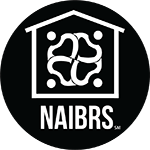Shared by Ed Currie of Associated Bank
Being prepared to apply for a mortgage can be very helpful in making the process smoother. Mortgage companies are required to “fully document” a file. Below are a few items that can ensure your loan application is not derailed, and will also limit the amount of documentation needed.
Income
Don’t Change Jobs: Changing jobs just before or during a loan application could possibly render your new employment income unusable or delay closing until your new income can be documented.
When you change jobs, your income will change. While very few people change jobs to make less money, the way compensation is structured from how mortgage companies view “stable income” may reduce the income that can be used to qualify. For example, if you go from a salaried position to a commissioned position, your income may be viewed as less. Even if the new employer communicates that your new variable income is “guaranteed”, they will very rarely put that in writing in order to make it usable.

Bottom line – if at all possible hold off on a job change until after closing.
Credit
Check your credit: Check your credit at www.annualcreditreport.com. This is a free report available to all consumers once per year. Make sure it is accurate and there are no negative items listed. If there is collection activity on your report that you were unaware of and they are less than a year old, pay them off. If they are older than two years you may be better off leaving them for now.
Don’t pay for your credit score: There are hundreds of different credit scoring models out there. The only model that matters is the mortgage model that the mortgage company will pull when you apply for your loan. Just because superdupercreditscore.com has your credit score at 900 doesn’t mean your mortgage score is 900. There is NO correlation. Save your money and work on the things that hurt your score.
Applying for new credit: Limit new credit inquiries. Credit checks hurt your score. In most cases it’s not a big deal, but if you are on the bubble it can be the difference between approval and denial.
Keep your credit card balances low: One item that has a significant impact on credit scores is the balance on credit cards relative to the limit of the card. The “utilization rate” can absolutely obliterate a credit score.
As the utilization rate get above 10% (i.e. balance of $1,000 on a $10,000 limit) your credit score drops. It is common to see someone’s credit hurt by 50-75 points for having high balances on credit cards. Keep them as low as possible; definitely below 30% and ideally below 10%. If you use credit cards on a regular basis, make a payment on a weekly basis to keep the balance down (you can do that).
Also, the credit score impact is per card. If you use multiple cards and as a whole are below 30%, but one or two are at 75%, you are still going to be penalized. The credit score model looks at each card. If you want to optimize your scores when they are pulled, keep the balances low on all cards before, during and until you close on your mortgage.
Assets
Documenting the borrower’s source of funds is an area that is highly scrutinized. Documenting the source, the acceptability of that source, and any “large” deposits can add a lot of additional documentation and in extreme cases, get your loan denied.
Season assets: You will be required to document two months of bank statements when you apply for your loan. Any funds that go into your account previous to the preceding months statement are seasoned. If there are any funds that you would like to avoid with the additional documentation, get those in your account well ahead of applying for your loan.
Large deposits: A large deposit is generally viewed as a non-payroll deposit of 50% or more of your monthly income. A large check deposited into your account will need to be sourced. Where did it come from? Is it an acceptable source for down payment? For example, an unsecured loan from any source is generally not allowed. If the funds won’t be in your account previous to the two months of statements you will provide, be prepared to prove where the funds came from.
Moving money around: Moving money from different accounts can create a lot of extra documentation. Do you have multiple accounts with the same bank and move funds between them routinely? If you do you will most likely have to provide all of the accounts to show that you are the account holder of the account. It’s a lot of documentation. Avoid or limit money movement if you can.
Where is the down payment coming from?: There are a lot of different, acceptable sources for a down payment. There are also unacceptable sources as well such as unsecured loans and credit card advances. If you won’t be pulling your down payment from your own liquid account (ie checking and savings accounts), be sure to talk to your mortgage person before you move any funds around or make a deposit.
One account?: If you have the time and ability to plan 3-4 months ahead, you could move all funds into one account that you plan on using for the down payment. If you did that and had no activity in or out, it would drastically limit the bank statement documentation you will need to provide for the loan application.
Documents
There is a bunch of documentation that is needed for a loan application. While you may be able to alleviate some of it by the suggestions in this article, you will still need to provide a number of items. You might as well start gathering some of those items or at least know where they are:
-
Make sure you have pay stubs and can access them
-
Locate your complete tax return and W2s
-
Do you have K-1s listed on Schedule E? We will need those too.
-
If you own 25% or more of a business or partnership, we will need the corporate returns as well.
-
If you own 25% or more of a business, we may need a year to date, unaudited, profit and loss
-
Bank statements – we need actual statements. If you no longer get them mailed to you, be sure you know how to access them online.
Construction Items
You generally won’t have your construction items for a while, but there are a few items to consider early on:
Timing issues if you will be purchasing a property: If you plan on purchasing a property and closing on your construction loan at the same time, be sure you understand the amount of time you need. You will need time to decide on a contractor develop the project scope, and time to get a firm budget. Only then can you order the appraisal which you will want to do no later than 30 days prior to closing. As you might imagine, it can be very difficult to get all of that done in a 45-60 average closing time frame. Depending on your potential project, you may want to consider closing in two steps; property acquisition and then the construction loan.
Understand what will be needed for the project cost: For a construction loan you need to document the complete cost of the project. It most cases the project cost will be the budget from the builder or general contractor (GC) you select. But in some cases, clients may opt to have some costs separate from the GC. If this is the case, you need to obtain bids for the material and labor for all items outside the GC budget before the appraisal can be ordered
Meet the Author …
Ed Currie
Ed Currie began assisting clients with mortgage financing in 1994 during one of the slowest mortgage markets in the last 25 years. The slow market allowed Ed to develop his client-centric philosophy and drive to make the process as stress-free as possible. Since that time, Ed has assisted over 5000 clients with total loan production exceeding $1 Billion.




